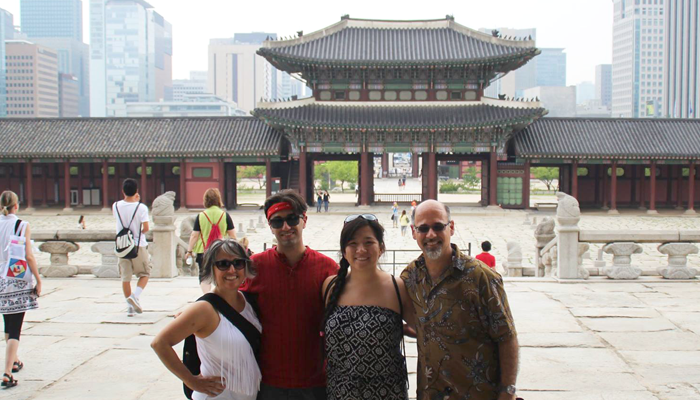My husband recently paid about $100 to spit into a tube and send his saliva to a lab to have his DNA analyzed. His mother is French Canadian and his father is an American “mutt.” His results came back in four weeks and confirmed what he already knew; some Irish, some Basque, some French. But it also showed he had some Somalian heritage. “How interesting,” we thought. Where could that have come from? Could it have been a marriage somewhere in his ancestors’ history? Could it have been the rape of a slave? What do we do with this information now? What does it mean?
The other reason this is so interesting for our family is because our daughter was adopted from Korea as an infant. She is all-American, wears Uggs, and sings along with “Despacito.” She looks Korean, but does not speak the language; hates kimchi, but hopes to study abroad one day in Seoul. We have always attempted to expose her to Korean culture, music, dress, and foods. We traveled to the country as a family two years ago to try to get to know her “motherland” a bit. Yet, she calls herself a “white girl”—tongue in cheek, mind you. “Mom, I have to have my Caramel Macchiato; I am a white girl.”
What makes someone Korean? Is it her genes? Is it the culture she grew up in?
I am the child of an East Indian immigrant and a German immigrant. We eat Indian curry several times a week, celebrate Christmas, and God forbid we have anything but maple syrup with our pancakes. I am always asking myself these questions. My daughter will not fit in with the Korean-Americans in this country; she does not share their history, their challenges born of being immigrants and not speaking the dominant language, and the experience of finding support with other Korean immigrants. She will not fit in with Koreans in Seoul; she does not speak their language, she has American tastes and American thinking. Nor does she automatically fit in with Americans; she does not look “typically” American.
I think she is more American than I am. She has grown up with parents who grew up in America. Living near Washington, D.C., she has friends who were born or whose parents were born in Europe, Africa, South America, and South Asia. She can bake a three-layer cake with fondant, put together homemade kimbap, and fix macaroni and cheese from the box. She is all ready for college.
When she was a baby, our social workers told us that we must be sure to introduce her to her heritage, to keep her interest in and love of her homeland alive. We have done that. Yet what does it mean to know your cultural heritage? Does our daughter need to understand current South Korean politics? Does she need to read Korean literature? I don’t know anything more than who the chancellor of Germany is, nor have I read any Indian literature.
Due to Ferguson and Freddie Gray, my awareness of racial bias has been raised. I had hoped we had moved away from racism. “We elected an African-American president, didn’t we?” I was in denial. I have a better understanding now of the pervasive bias, hatred, and systemic racism that exists in this country.
My daughter has dealt with racism. The kind that Asian-Americans are faced with. She is expected to be smart, and get straight A’s. She was told by a first-generation Korean classmate that she is not “really Korean.” How should she react? How should we advise her? I want her to be proud of who she is. I want her to value her Korean heritage. I tell her how much I love her dark hair, her beautiful almond shaped eyes. But is that what makes her Korean? My husband likes to say that he is now part Korean, because he has a Korean daughter. Can you claim to be a particular culture because you admire it… because you have a family member who is of that culture… because you grew up in that culture? And to what extent does the word “culture” overlap with “race,” “ethnicity,” or “nationality”?
In several months, we will be visiting our son, who is working in Namibia for the Peace Corps. In light of his DNA test results, my husband jokes that we are returning to his homeland, or at least the same continent. We are very competitive, and I tell him, “But Africa is the origin for all of mankind, so it is a homeland tour for me as well.”
As you can tell, I have a lot of questions, and no real good answers. When I have to finally put these thoughts to rest so that I can fall asleep at night, I usually come back to the same idea. Yes, it is true that all the varying cultures and ethnic traditions in the world make our lives more colorful and exciting and beautiful but, at the end of the day, my child, my love, is just that. Not Korean, not American, not female, not adopted, not biologically connected, but my beloved child created by a shared life together.



